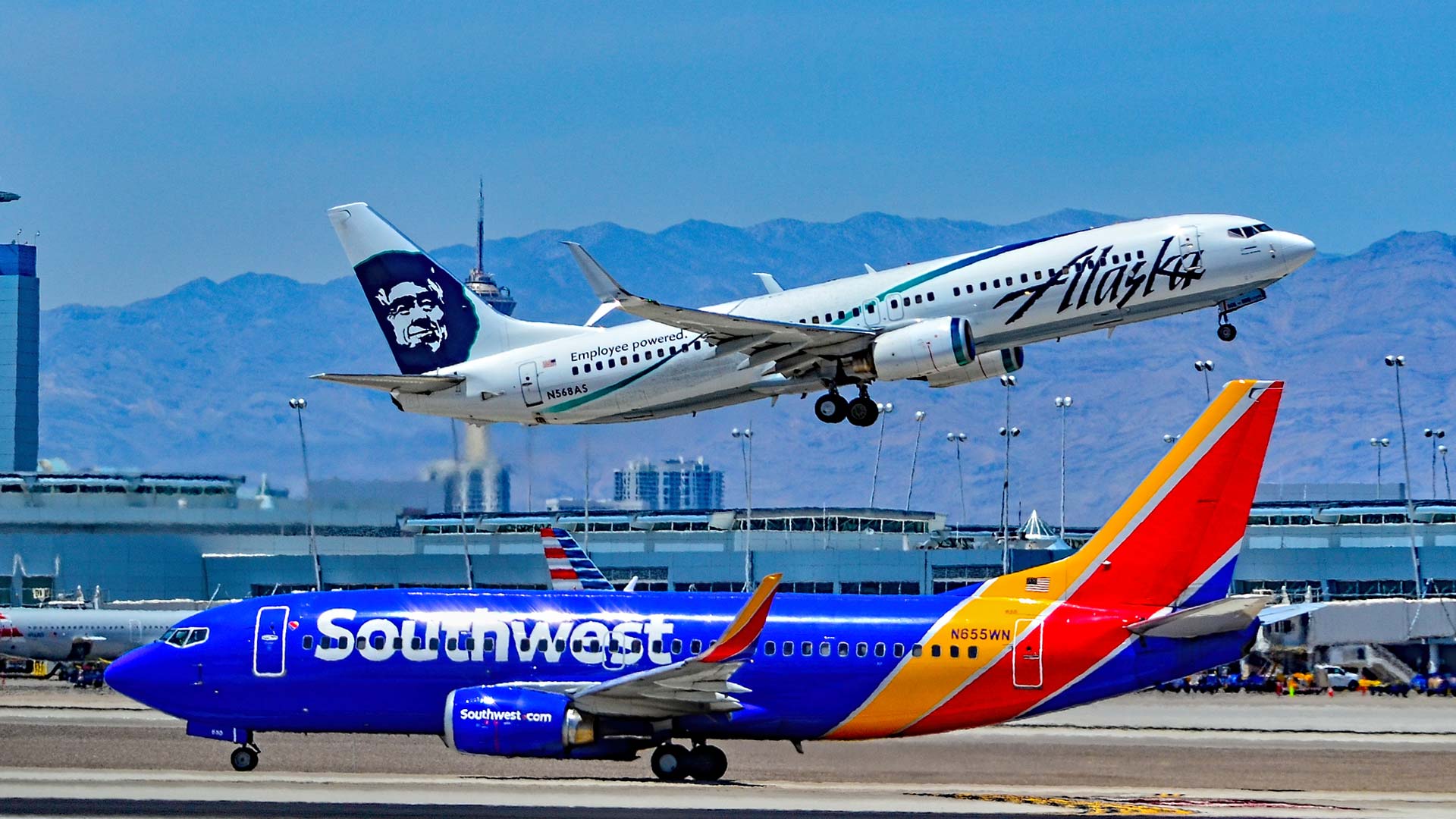As we near the 2021 United Nations Climate Change Conference, also known as COP26, being held in Glasgow at the end of October, global companies have been ramping up their climate change credentials and airlines are no exception. Yesterday, Alaska Airlines announced the launch of a new venture fund that will invest in emerging technology to advance its progress toward net zero, while Southwest Airlines also announced a 10-year plan to maintain carbon neutrality to 2019 levels while continuing to grow its operations.
"To live our purpose and create an airline people love, we must operate every day in a way that cares for both people and the environment," said Alaska Airlines CEO Ben Minicucci. "To do that, we are seeking technologies that will accelerate our mission to build a more sustainable future for the aviation industry."
For its inaugural investment, Alaska Star Ventures, has partnered with UP.Partners, an early-stage investor in sustainable, multi-dimensional mobility technologies.
"The future of aviation is a collaborative effort between founders, funders, builders and key stakeholders - like Alaska Airlines," said Cyrus Sigari, UP.Partners' co-founder and managing partner. "With transportation as the underlying fabric of society, selective and values-driven investments that move the industry toward sustainable aviation are key. We're proud to partner with such a mission-aligned group that is launching today: Alaska Star Ventures."
"We're proud of our ambitious targets and our legacy of being pioneers, but we also know we can't fundamentally decarbonize and achieve net zero carbon emissions alone," said Diana Birkett Rakow, Alaska Airlines' vice president of public affairs and sustainability. "That's why we're focused on discovering, partnering with, and enabling technologies that will allow us to take real and meaningful steps on our five-part path to net zero now and in the years ahead. We're thrilled to partner with UP.Partners on our first project and are fortunate to have aviation veteran Pasha Saleh leading corporate development to successfully launch and grow this initiative."
Alaska announced in April its commitment to reach net zero carbon emissions by 2040 with a five-part strategy to decarbonise. Alaska's deployment of Flyways, artificial intelligence and machine learning software that supports the airline’s dispatchers' route optimisation efforts, inspired the pursuit of additional technologies to accelerate its path to net zero.
Southwest Airlines has announced plans to reduce carbon emissions intensity by at least 20% by 2030 and maintain carbon neutral growth every year through the end of the decade.
Southwest aims to reduce its carbon emissions per available seat mile (including scope 1 and scope 2 emissions) by at least 20% by 2030 through fleet modernisation, route optimisation, and other initiatives; and replace 10% of its total jet fuel consumption with sustainable aviation fuel (SAF) by 2030. The airline will also offset emissions by providing the first US-based airline carbon offset offer with loyalty points and for every dollar contributed toward offsetting Southwest's carbon emissions, Southwest will match the contribution.
"As a leading global citizen, we're building on prior efforts to address our environmental impact, and with today's announcement, we're setting goals to reduce our carbon emission intensity and increase SAF in our operations; and we're working to advance knowledge in the field of sustainability," said Bob Jordan, Executive Vice President and Incoming CEO at Southwest Airlines.
In addition to its plans to reduce, replace, and offset carbon emissions, Southwest will also continue to partner with organisations and nonprofits whose work complements its efforts to improve environmental sustainability.
Southwest states that its ultimate objective is to achieve carbon neutrality by 2050 but stresses that the scope of its sustainability efforts will extends beyond a ten-year time horizon.
"Southwest is making sustainability a priority in order to continue connecting Customers to what's important in their lives while striving to achieve our carbon neutrality goals," said Stacy Malphurs, Vice President of Supply Chain Management & Environmental Sustainability for Southwest. "Our goal to reduce, replace, offset, and partner are important next steps in the journey to build a holistic approach to improve our environmental sustainability.

